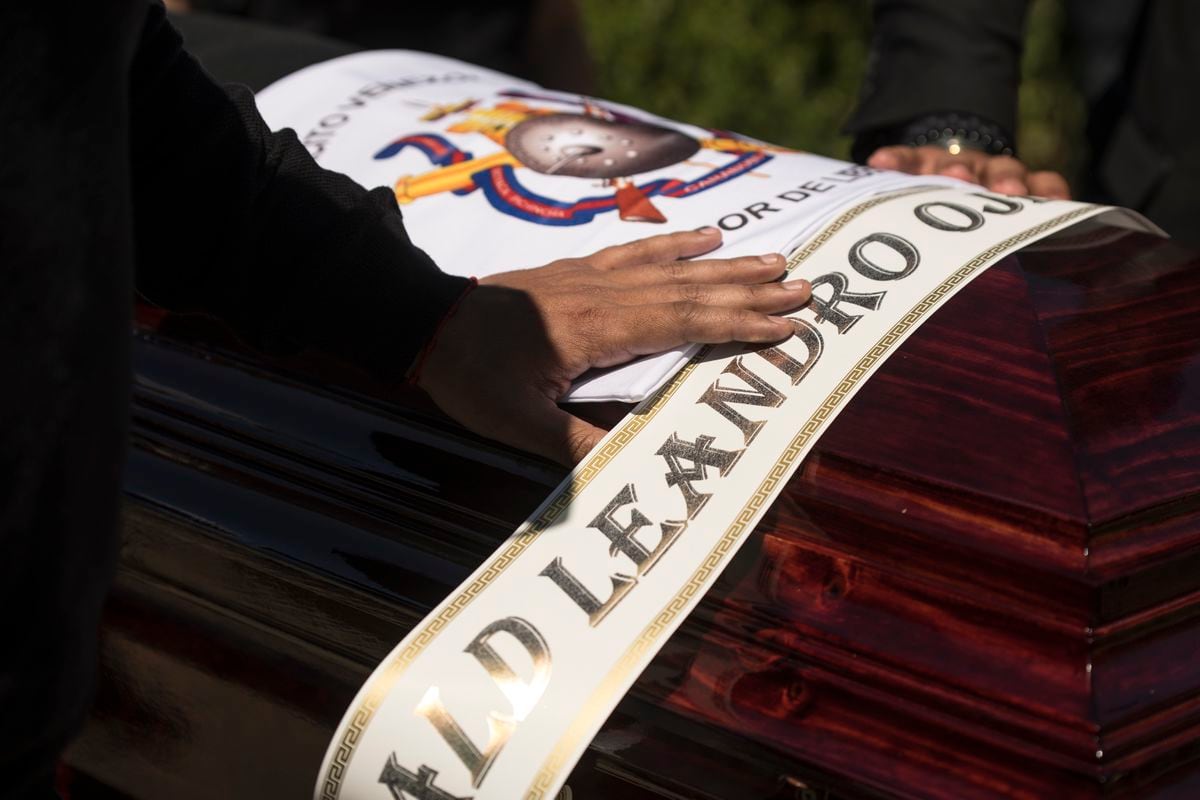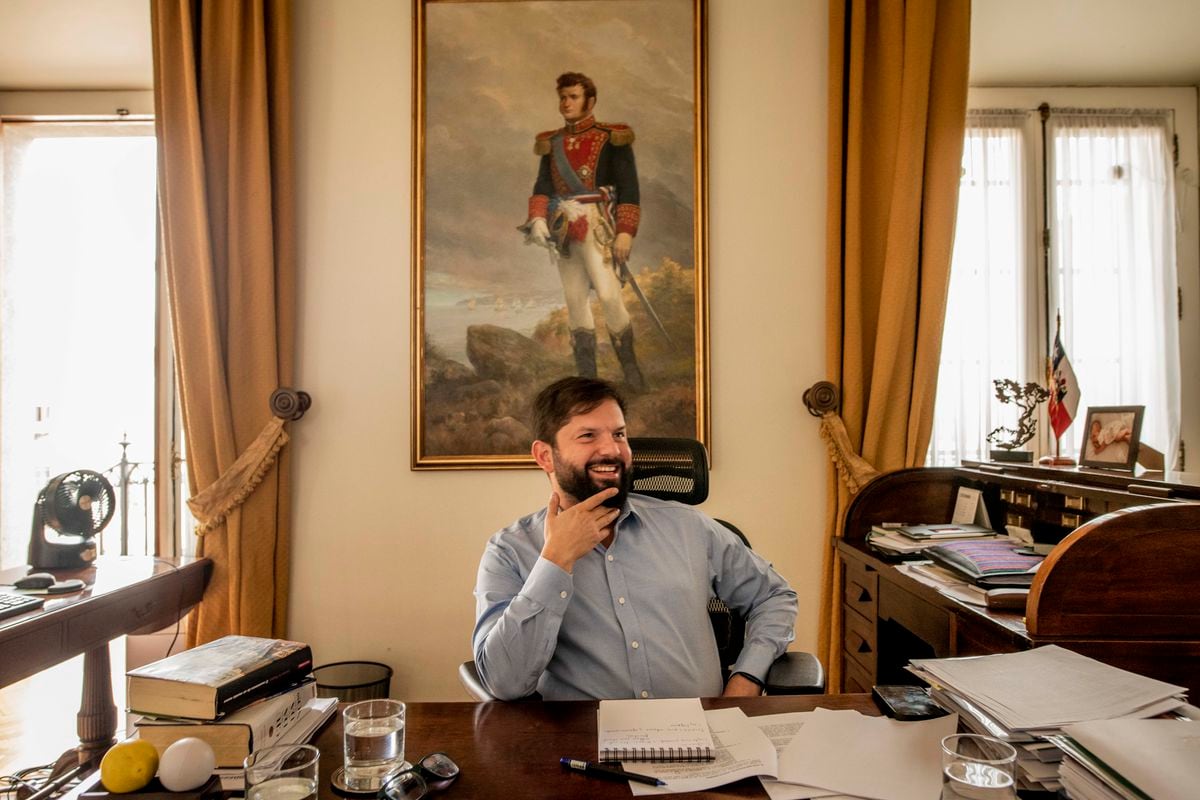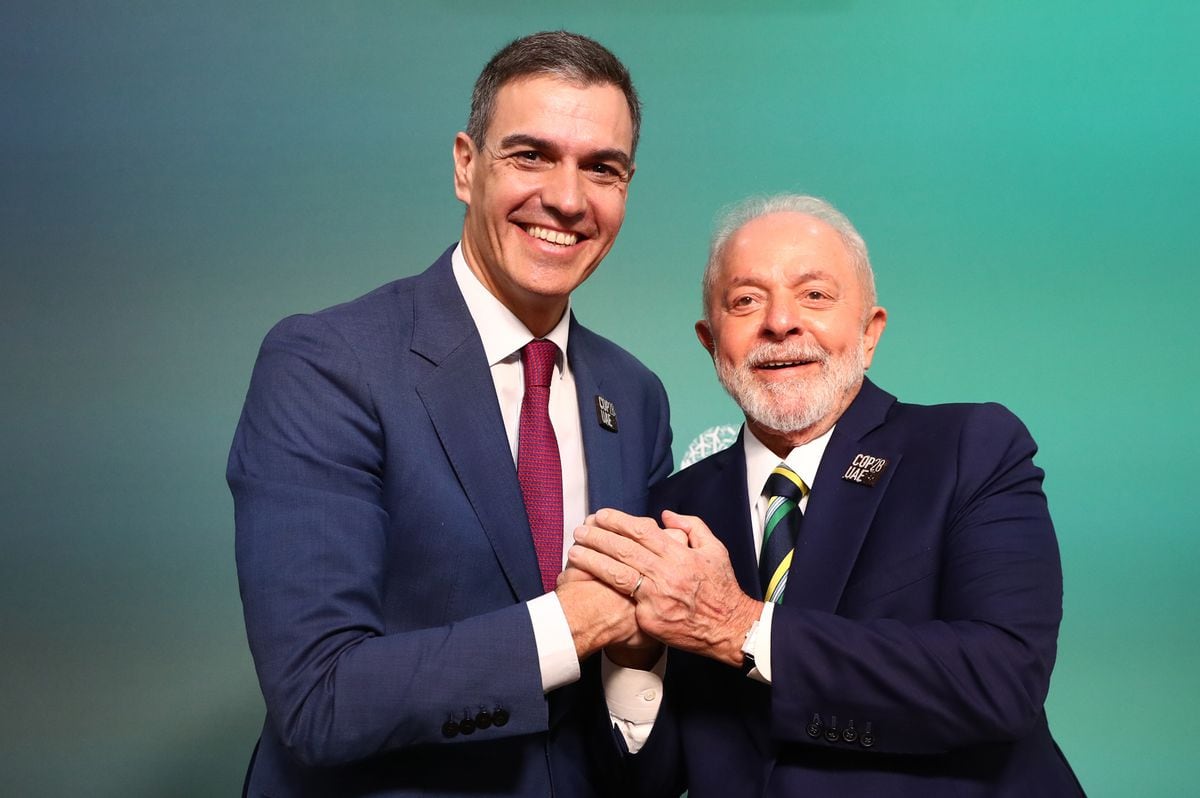The candidate for the presidency of Chile from the left, Gabriel Boric, participates on Friday, December 10, in the debate with his rival from the extreme right, José Antonio Kast.IVAN ALVARADO (Reuters)
The candidate of the Chilean left, Gabriel Boric, promises to turn a good part of the Chilean model upside down. Heir to the student protests of 2011, his campaign recovers as its own the demands of the social unrest of 2019, when hundreds of thousands of people took to the streets against inequality and for more presence of the State in education and health. "We have been entrusted with the dispute for democracy, justice, inclusion, respect, for the dignity of all," declared the candidate on the night of the first round, on November 21, when he already knew that would be the rival of the extreme rightist José Antonio Kast in the tiebreaker on December 19
.
Boric is presented for the Approve Dignity alliance, after defeating the inmate's favorite, the communist Sergio Jadue, in primary elections. The Communist Party is the main force in Boric's coalition, and it will be its leaders who, as they have promised, will ensure the fulfillment of the campaign promises. In general terms, Boric intends to establish a welfare state with a social protection system that guarantees universal basic rights.
For the candidate on the left, the change begins by reducing the gulf that separates the quality of private and public health services.
For this, it proposes a Universal Health Fund (FUS) in charge of managing the funds contributed by the workers and the resources that the State adds.
In education, Boric promises to expand the benefit of gratuity in universities and eliminate banks as a source of financing for the system.
He even wants to forgive the debts of students who have been indebted for life with the bank to pay for their degrees.
More information
Presidential elections in Chile: the keys to the second round between Boric and Kast
His proposals involve enlarging the State, a maxim that clashes head-on against the inheritance of the dictatorship and the policy of austerity and minimal State maintained during the democratic transition. To finance these changes, and increase collection, Boric proposes an extraordinary tax on the richest and a higher tax burden on mining companies, responsible for most of the foreign exchange income via exports. His program increases the tax burden to 8% of GDP, although after the changes it introduced to attract moderate sectors of the electorate, the terms will be longer.
Boric's catchphrase for the second round has been, in fact, “fiscal sustainability”, an attempt to ward off the specter of a spending disaster that so scares investors and big business. On Friday, during a radio debate with his far-right rival, Boric said he would lower initial revenue expectations and pledged "fiscal convergence." “That is why we are going to respect the budget that was approved in Parliament for next year. Then we will prioritize. We are particularly interested in health reform, but we are going to have to move forward depending on whether we approve the tax reform. Part of our program will only be effective to the extent that we achieve the collection and expected growth ”, he explained.
On the external debt, he promised to keep it below 40%, as now. "Long-term stability is a commitment of our government," added Boric, in a message at the heart of the criticism he receives for his alliance with the most extreme sectors of the left. Boric no longer talks about changing everything at the root, in part because his electoral needs have forced him to approach the Cristina Democracy and the Socialist Party, the two parties that governed Chile between 1990 and 2010 under the Concertación formula. The generational change implicitly criticized and ignored the legacy of these traditional parties. "I believe in social democracy and in the collaboration of the public and private sectors and I do not like the hegemonies of any sector, as today in Chile we have the hegemony of the market over the public",Boric said during the last debate.
One of the proposals of the candidate that raises the most foam in Chile is the elimination of the private pension system, the AFPs. Boric promises to replace it with a state solidarity system, where workers' contributions are administered by an autonomous public entity and not a private company, as up to now. Also obliged by the moderate sectors, he says that the resources of the AFPs will be heritable and that the changes to the system will be gradual. They will not interfere, he said, "in the ownership of the funds saved to date." Any change will come out of a public debate, in accordance with "the technical and political difficulties of this type of structural reform."
Boric's social agenda is the traditional one of the progressive left: the right to abortion, recognition of sexual diversity and equal marriage, and deepening gender parity. But he has had to adapt his discourse on security and order, the flag that has given so much political profit to his rival Kast, a promoter of the strong hand against immigration, crime and everything that his right wing considers "terrorism" . The Mapuche conflict over the ownership of ancestral lands forced Boric to take sides in the south of the country, in Araucanía, where the vote was for the extreme right on November 21. Boric opposes the militarization of that region, but defends the idea of fighting crime. "I sharply separate those who commit crimes from the just demands of the Mapuche Nation People," he said.On urban security, another of the citizen concerns that has given wings to Kast's speech, Boric promises to "increase and restructure the police force so that it is where it is needed."
The results of the first round showed that Boric's vote is an urban vote, very solid in large cities like Santiago, the capital, but weak in the rural regions of the north and south. That is why the candidate has tried in recent weeks to seduce those sectors by promising them "more state funding and better services." Especially complex in the rural areas of the north is the migratory issue. Right-wing Kast paid off by promising to build a ditch at the border to stop immigration, a radical solution unacceptable to the progressive electorate on the left. Boric says, instead, that immigration must be approached "from a Human Rights point of view."
Both Boric and Kast will have to capture the vote of the center next Sunday, frightened by programs that he considered radical.
They will also have to seduce 46.25% of voters who decided to stay at home on November 21.
Boric and Kast reach the tiebreaker with an electoral capital below 30%.
Although the polls give the leftist candidate a better chance of victory, there is a 25% of undecided who are enough to distort any forecast.
Subscribe here to the EL PAÍS América newsletter and receive all the informative keys of the current situation in the region.

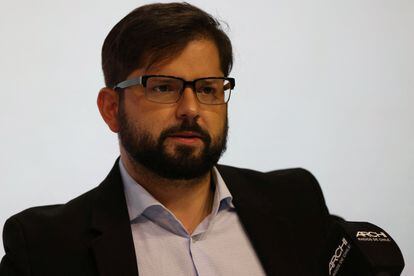
/cloudfront-eu-central-1.images.arcpublishing.com/prisa/IF24TOV3MFHHROUE2LMCLODXWI.jpg)
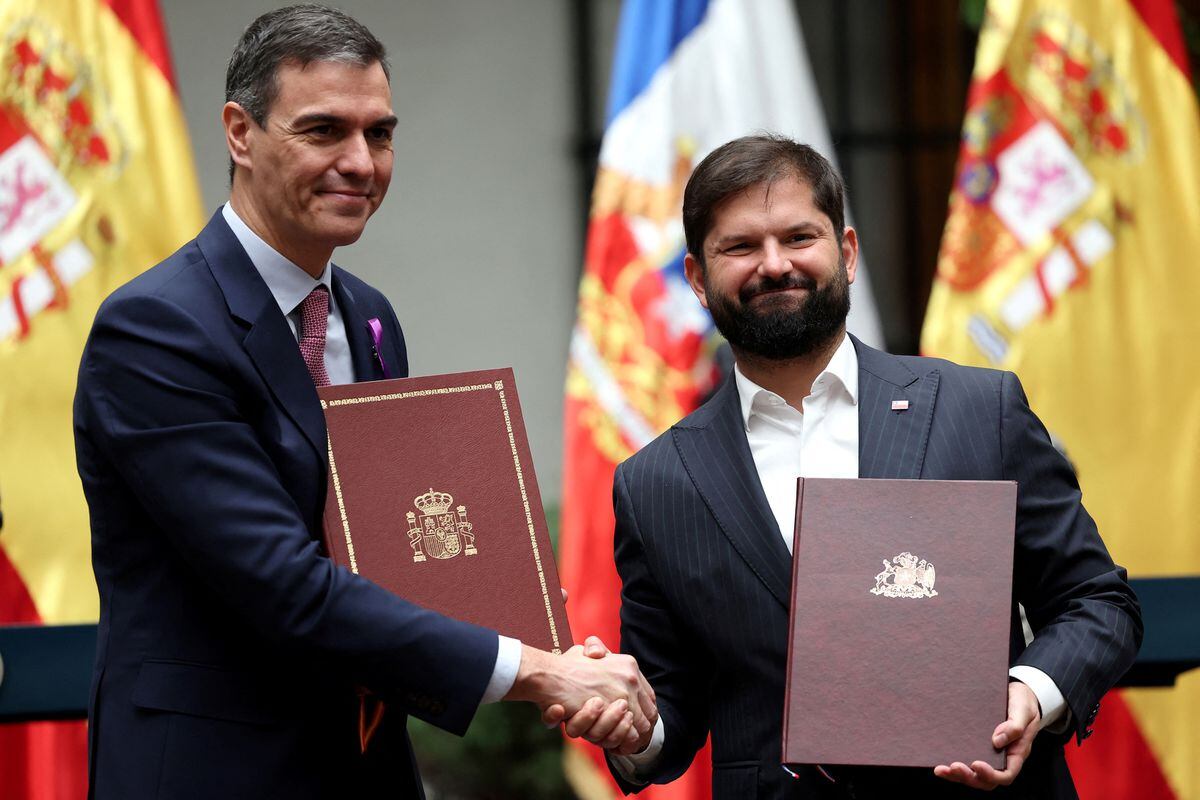
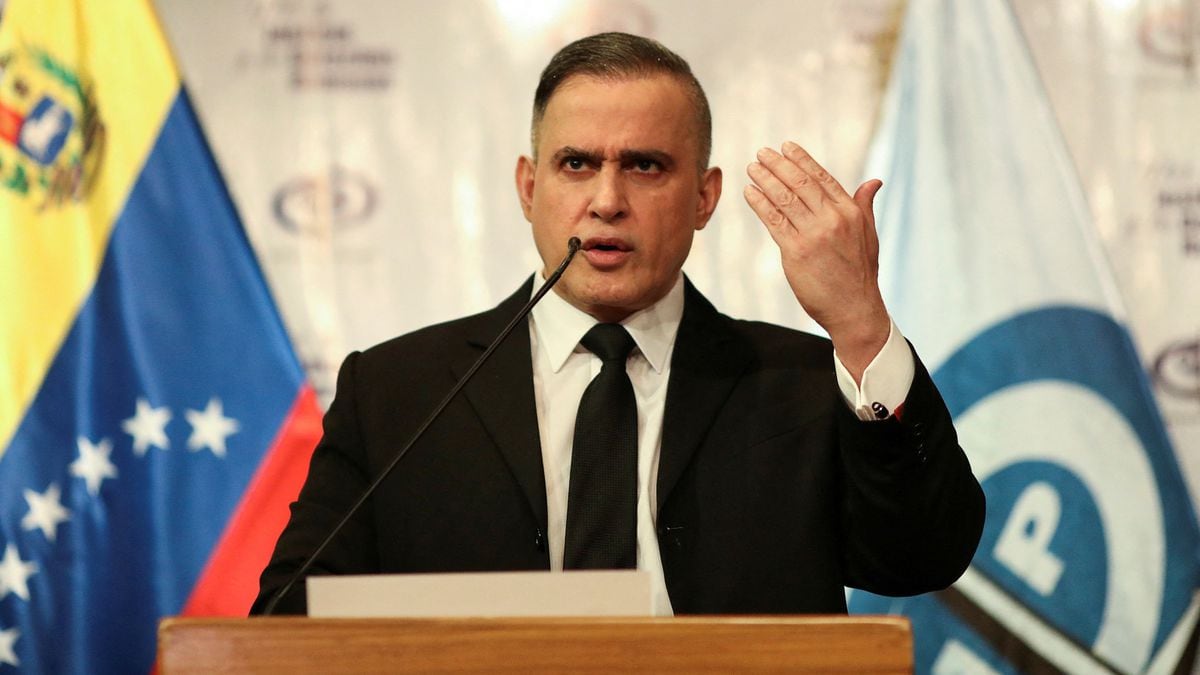
/cloudfront-eu-central-1.images.arcpublishing.com/prisa/DAXPXX7XEC2R2VNNOX5XEX4T2U.jpg)
/cloudfront-eu-central-1.images.arcpublishing.com/prisa/U47VQFQW4FGCBFYMTUPCMC5PKE.jpg)
